For MMO diehards, there's only one conversation: is the genre dying or already dead?
As the genre becomes set in its ways, a few holdouts on r/mmorpg honor the past and predict a bleak future.
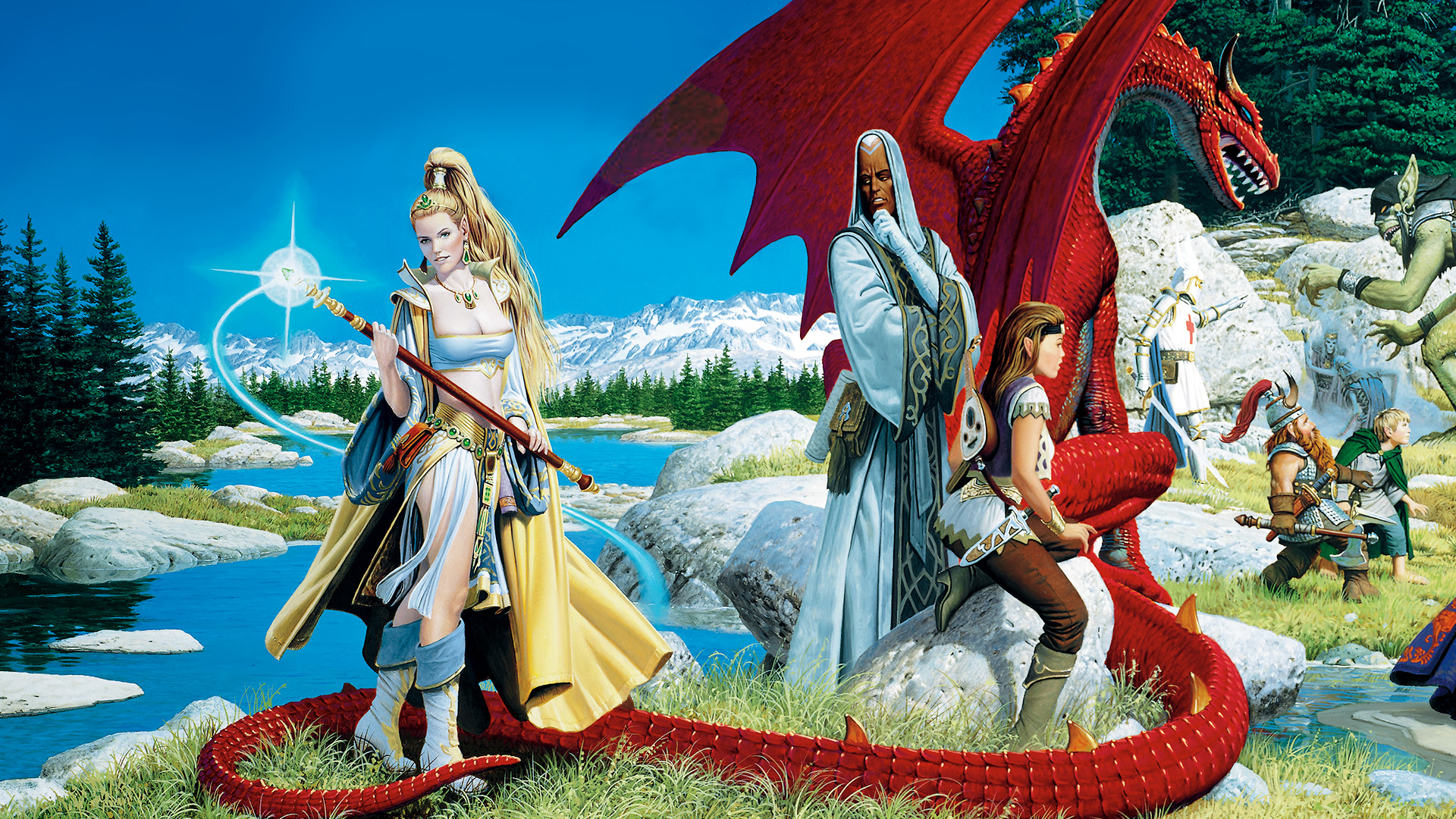
There was a time, not long ago, when the residents of the r/mmorpg subreddit spoke of things in the present tense. You too probably remember those days. The MMO boom period, where it felt like the frontier of gaming was in massive online worlds, packed with millions of people. But now the sun has set on this nation. "Is this a dead genre?" wonders a user named Eldrek, whose post is currently near the top of the subreddit.
"Where can I find a contiguous, massively multiplayer experience? Not a solo experience. Not instanced. A living breathing economy, a world to exist in. I've been chasing this since I first experienced MMOs with RuneScape and WoW in 2004," they continue. "Does it exist? Am I just missing the shining diamond in the pile of dirt that is this whole genre? … Everywhere I look, it seems people are burnt out on the modern MMO experience, yet where is the alternative? Where is my simulated massively multiplayer world? Emergent gameplay? … Why don't MMOs exist anymore?"
Why don't MMOs exist anymore?
In retrospect, the MMO apogee was about as intense as it was misguided. Just look at some of the names on these tombstones: Richard Garriott's Tabula Rasa, Warhammer Online, The Matrix Online, Everquest Next. What about the MMOs that remain online, toiling for a splinter of the boom? Star Wars: The Old Republic and Final Fantasy 14 recovered from famously ignominious launches. Elder Scrolls Online is still telling new stories. Plenty others fight for tiny scraps of the MMO population. But many more have died. As the body count piled up, it became clear that there could really only be one World of Warcraft.
That's what makes the badlands of r/mmorpg such a curious read. The banquet has dried up. New MMOs, or even exciting new things happening in old MMOs, are rare in 2019. Today the posters with a deep affinity for the genre are focused on a certain anguished nostalgia. A 33-year old named Alex from the UK, who's served as a moderator of the subreddit since 2016, tells me that while the forum's culture has always trended towards wistfulness, it hit an apex following the shuttering of NCSOFT's WildStar last year, and the unveiling of "legacy servers such as World of Warcraft: Classic."
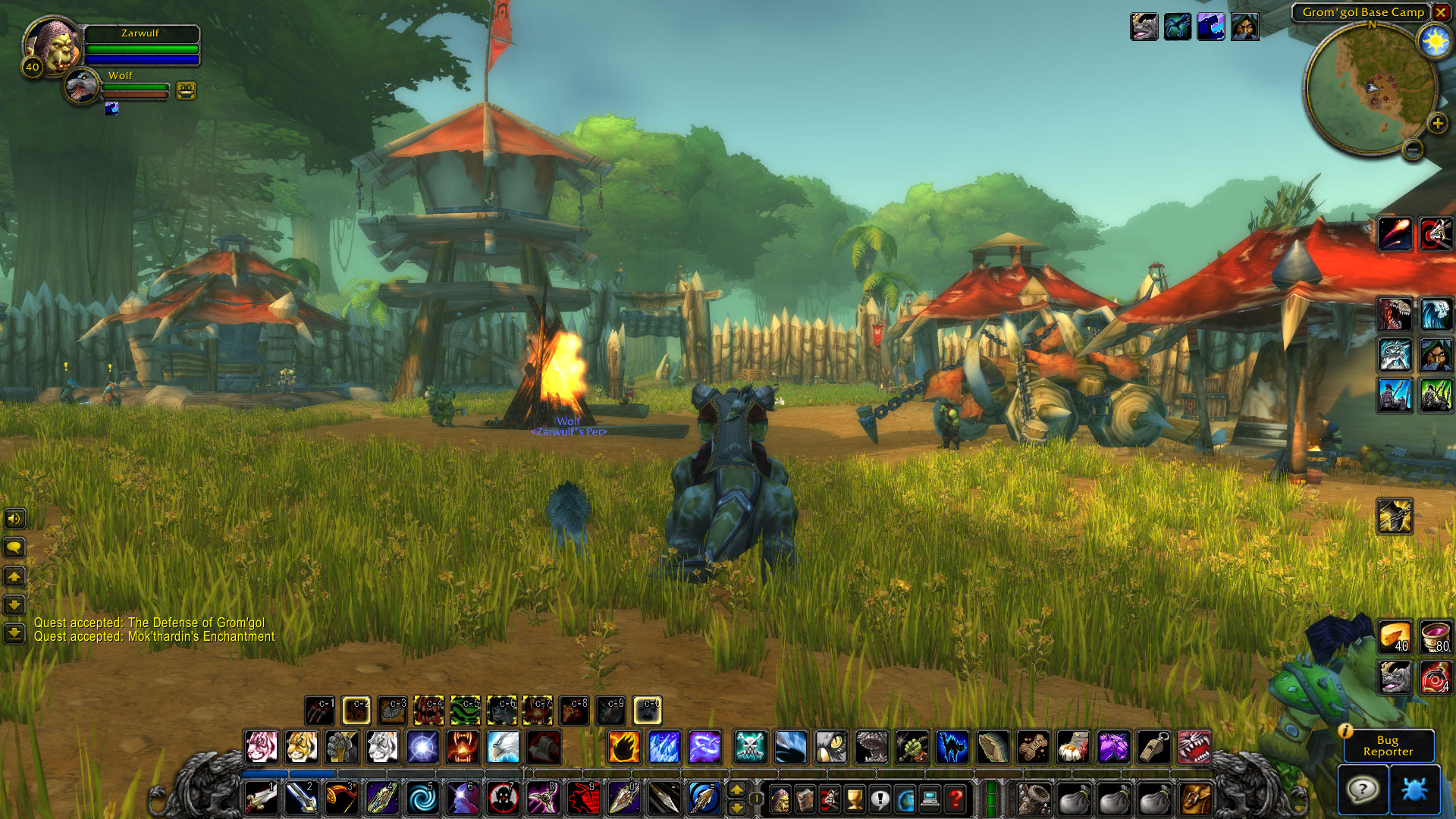
With a lot of bad news, and little to be hopeful for on the horizon, posters have defaulted to topics everyone can agree on: The good old days, and the various ways that the contemporary products are broken now.
Why is it that modern MMOs just aren't the same, man? Here's the general theory on r/mmorpg: Early MMOs embraced some of the more traditional trappings of role-playing games that have slowly atrophied away as the genre has gone into decline. In Everquest, for instance, solo content was almost entirely untenable—if you were playing a spellcaster, you needed to have a tank in your party to grind XP out of the simplest of mobs. Ultima Online was equipped with full loot PvP, which meant that other players could rob you naked on the roads of Sosaria. Even World of Warcraft, which at launch was derided by grognards for not being hardcore enough, sprinkled in a ton of flavor-rich flourishes—like how warlocks could summon a Doomguard at the cost of one player's life.
There are no surprises in modern MMORPGs. No consequences. You simply lock your brain into [a route] and turn on Netflix.
Redditor Fissionlight
As Alex explains, these are the things r/mmorpg eulogizes.
The biggest gaming news, reviews and hardware deals
Keep up to date with the most important stories and the best deals, as picked by the PC Gamer team.
"Everything feels too streamlined and similar to each other. You don't work for the game so to speak. You do everything alone now until endgame. You fast travel everywhere now. You follow a quest marker to your destination. Some games will even let you autopath to your destination now," he says. "I think that diminishes the sense of accomplishment when you actually do get something done."
Another frequent r/mmorpg contributor, who goes by Fissionlight, makes his case more brutally: "In the end, this genre has been gutted of everything that made it great in the first place. We've gone from living, breathing worlds filled with danger and mystery to paint-by-numbers, on-rails, and incredibly bland quest paths. There are no surprises in modern MMORPGs. No consequences. You simply lock your brain into [a route] and turn on Netflix."
The clientele is undeniably right about one thing. MMOs have gotten tamer, and more player-friendly, as the years pile on. Blizzard introduced the Dungeon Finder tool, which automatically scanned the multiverse of servers and sorted your character into a dungeoneering party, before teleporting the troupe to the instance door. No longer would Alliance players need to take the ridiculously dangerous journey across Horde territory to bang down the doors of the Scarlet Monastery. It completely reinvented the physical contours of Azeroth; making those routines much easier to navigate, while accidentally extinguishing the collective solidarity WoW demanded of its players in its wildest, most brutal days.
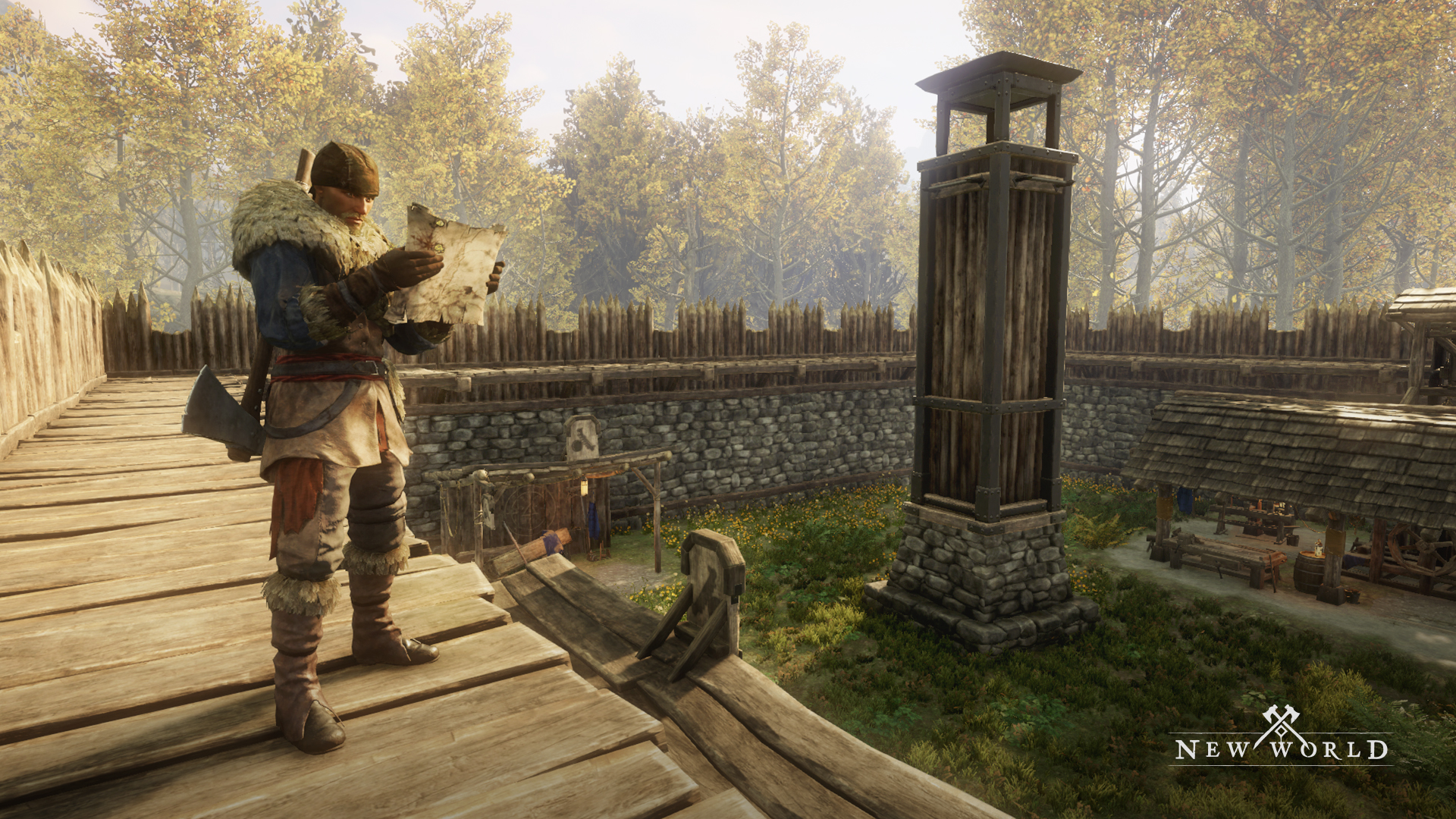
MMO players now are almost obsessed with min-maxing and getting to end game as quickly as possible so the feeling of discovery and wonder are gone
r/mmorpg mod Wonz
The r/mmorpg subreddit does not represent a quartered-off niche of the MMO demographic, either. The demand for vanilla WoW servers almost resulted in a mutiny. Interest leading up to launch has already shown it's going to be a big deal.
There's some irony here. For as much grousing the subreddit can muster about the stale state of the MMO, through a certain lens, it's never been healthier. The trappings of an MMO are the default keep-players-hooked formula. Destiny, Warframe, The Division 2, Anthem—all of those could be considered MMOs. But r/mmorpg reserves a certain memeified avarice for the pretenders they refer to as "hub-based games."
Again, their reasoning is a little pedantic, but fairly sound. "A game with only eight players in the zone doesn't feel quite the same as a game with dozens of players at the same time," says Wonz, another moderator who says he's lurked in the forum for at least five years. "It's common for games being branded as MMOs that don't quite fit the bill to cause a big backlash in the community."
Of course, it's also easy to interpret a game like Destiny to be a natural evolution of the MMO form—growth and innovation, instead of some sort of hollow desecration. This is the tension of r/mmorpg. Is the ferocious nostalgia truly a result of cynical, generic, less flavorful design in modern MMOs and MMO wannabes? Or is simply a symptom of getting older?
I'm 28-years old, but I feel like if I was a teenager again, I would be able to feel the same magic I felt in World of Warcraft in any MMO or pseudo-MMO built with today's conveniences. I mean, everything from my youth feels more sublime, looking back, than it does as an adult. That's how it's supposed to work, right?
"It's not related to the game itself. They played World of Warcraft or Everquest when they were a lot younger, when they could just play all day," says Stoyan Watsula, a third r/mmorpg mod. "Some people have rose-colored glasses on [when it comes to the leveling experience.] You think that it was fun back in the day when you earned one level a day. But nowadays, do you really want to play for three months straight?"
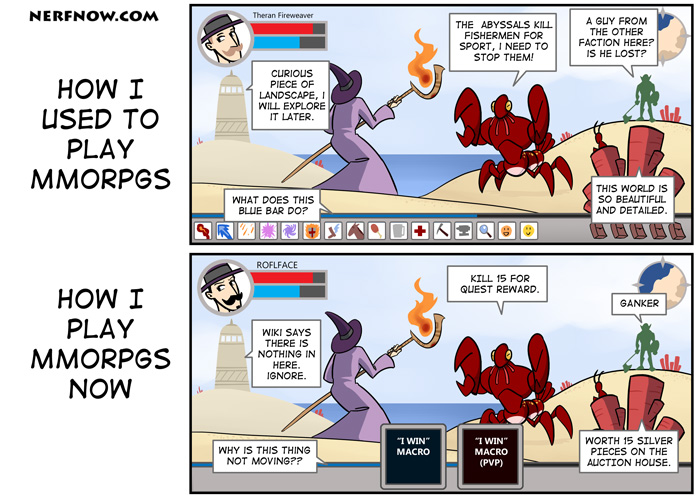
Watsula's take made me think of one of my favorite posts on r/mmorpg. It's a comic about the different ways we played MMOs in the mid-2000s and the way we play them now, but in a rarity for the subreddit, it lays the blame at the feet of the player. The first image catches the bright-eyed adventures of a level-one scrub taking their first steps in the overworld. Our UI is a cluttered confusing mess, we've made a note of the next vista we'd like to explore, we've named our character something tasteful and in-universe—as if to pay homage to whatever canon we're infiltrating. But in the second panel, 10 years later, we've reduced our hotbars to two macros, our Auction House addon is already tabulating the average value of our loot. There's a vista on the horizon, but we've already alt-tabbed to the Wiki and drawn up a more efficient path.
The culture of streamlining has infected everyone, even the players who pine for the unwashed golden era. No matter how much we grumble, we'll still check what's datamined from the Public Test Realm, as soon as it hits the internet. It's inevitable that with systems that ask you to spend vast swaths of time making numbers go up, players will always gravitate towards efficiency—but that efficiency ends up eroding some of that earthy texture longtime MMO players long for, right out from under them.
Wonz tells me he's a believer in a potential MMORPG renaissance. There is at least one MMO in production, called Pantheon, which is trying to evoke the spirit of what r/mmorpg believes has gone missing. ("We focus on these poignant elements of design and aim to provide our players with environments conducive to building reputations, friendships and alliances—as well as rivalries and notoriety," reads the statement of purpose on the website.) Perhaps its success or failure will be a sign: Whether the industry has changed, or we have.
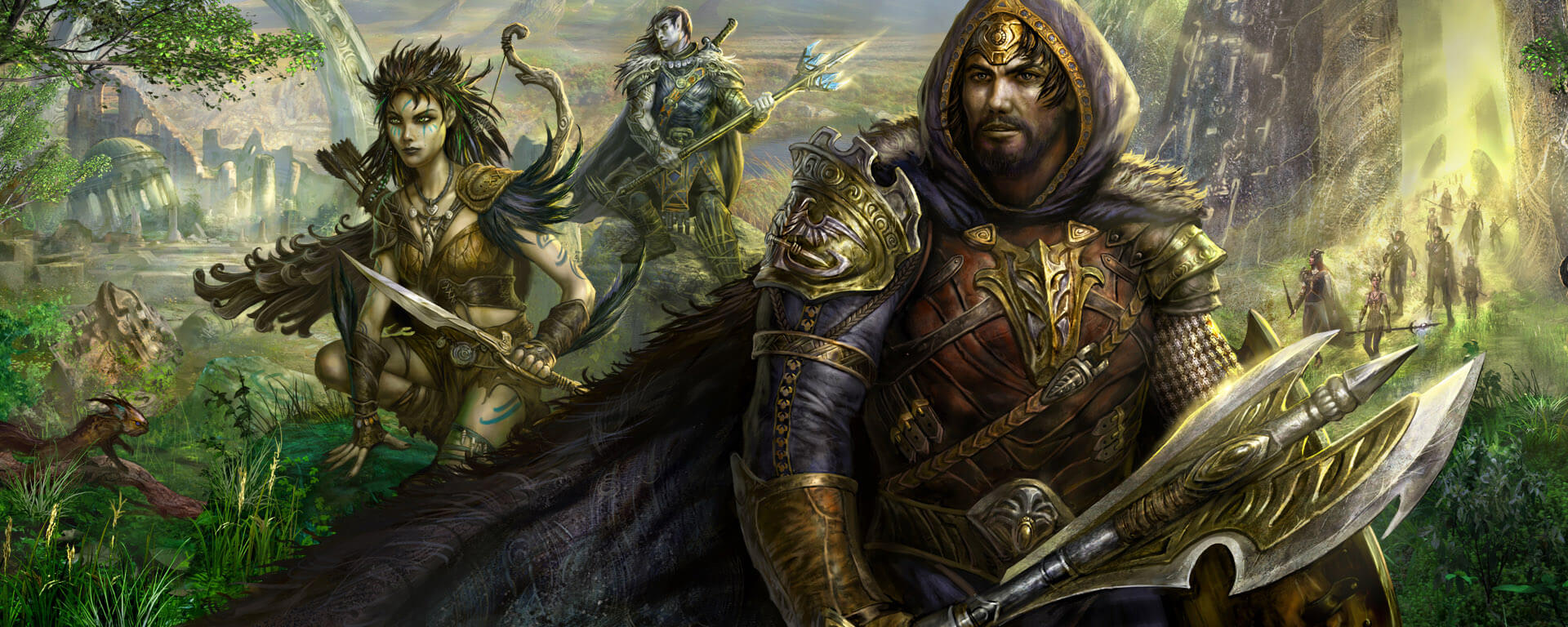
"I think we just need developers to be more willing to break from the mold but it will be an uphill battle. MMO players now are almost obsessed with min-maxing and getting to end game as quickly as possible so the feeling of discovery and wonder are gone," Wonz says. "Everquest even had that marketing line, it went something like 'you're in our world now' and you logged into this crazy big world and you just went out there and did your thing with other people. I can't say games feel the same way anymore."
Alex, on the other hand, admits that it's pretty unlikely for an RPG to evoke a straight-up mania like it could in 2004. In retrospect that trend sounds downright anachronistic—how could a product as ornery, and fussy, and demanding as vanilla World of Warcraft be the biggest game in the world? "I think the future is something similar to what Final Fantasy 14 has now: a reasonable user base, regular update cycles, and a clear end," he says.
The era of the MMO is over, but their influence is still everywhere. It's a convoluted future for a genre that's only getting more confusing and hard to define. At the very least, the denizens of r/mmorpg know the feeling they want. They were there. They saw it with their own eyes. Until they can get it back, they'll be commiserating as they fashion a worthy tomb.

Luke Winkie is a freelance journalist and contributor to many publications, including PC Gamer, The New York Times, Gawker, Slate, and Mel Magazine. In between bouts of writing about Hearthstone, World of Warcraft and Twitch culture here on PC Gamer, Luke also publishes the newsletter On Posting. As a self-described "chronic poster," Luke has "spent hours deep-scrolling through surreptitious Likes tabs to uncover the root of intra-publication beef and broken down quote-tweet animosity like it’s Super Bowl tape." When he graduated from journalism school, he had no idea how bad it was going to get.

